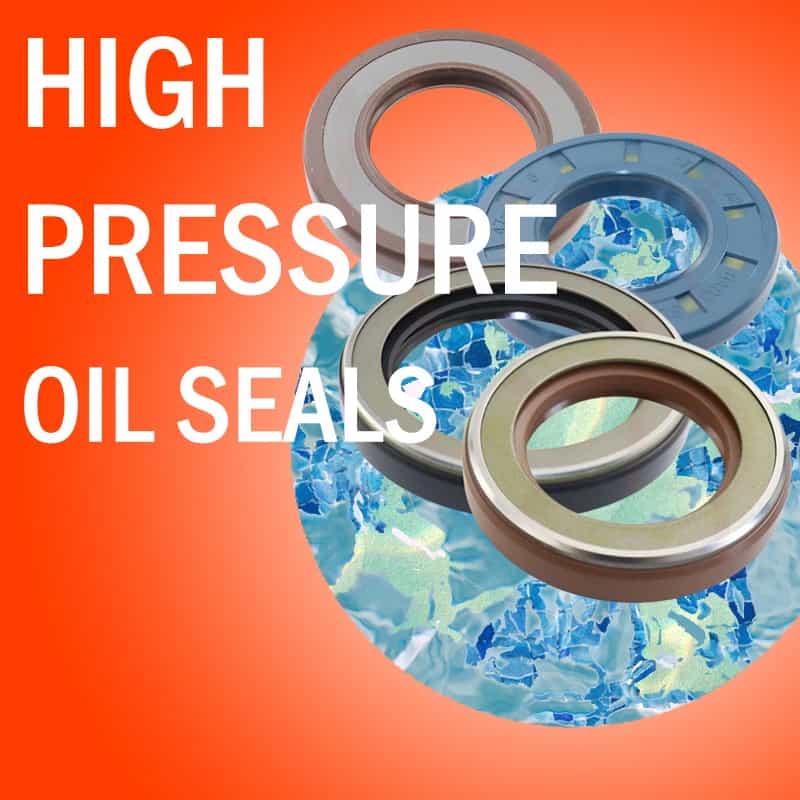កញ្ញា . 29, 2024 09:46 Back to list
Choosing the Right Oil Seal for Your Pump Applications
The Importance of Oil Seals for Pumps
Oil seals, also known as radial shaft seals, are critical components in various machinery, particularly in pumps. Their primary function is to prevent the leakage of lubricants and to protect internal components from contaminants. Given their integral role in the operational efficiency and longevity of pumps, understanding their design, application, and maintenance is essential for anyone involved in machinery management.
What is an Oil Seal?
An oil seal is a mechanical device that forms a barrier to contain lubricating oil within a pump while preventing contaminants such as dirt, dust, and moisture from entering the internal areas. Typically made from elastomers (rubber-like materials), they possess a lip that exerts a sealing force against a rotating shaft. This design allows oil seals to withstand various movement motions without compromising the seal integrity, making them suitable for both static and dynamic applications.
Why are Oil Seals Vital for Pumps?
1. Leak Prevention One of the most critical functions of oil seals is to contain lubricants within the pump. Any oil leakage can lead to insufficient lubrication of moving parts, causing increased friction, overheating, and ultimately, pump failure. By ensuring that oil remains in the system, oil seals help maintain optimal operating conditions.
2. Contamination Control Pumps are often exposed to harsh environments, where dust, air, and moisture can easily breach internal components. Oil seals provide a first line of defense against these contaminants. A well-functioning oil seal prevents foreign particles from entering the system, which could otherwise cause wear and tear.
3. Enhanced Efficiency The presence of oil seals contributes to the overall efficiency of a pump. By reducing friction and minimizing the chances of leaks, they enable pumps to operate smoothly and at optimal levels, minimizing energy consumption and operational costs.
4. Prolonged Equipment Lifespan Regular wear and tear is an inevitable aspect of any mechanical system, but oil seals can help extend the lifespan of pumps by safeguarding against common failures. Maintaining proper sealing reduces the risk of expensive damage requiring extensive repairs or premature replacements.
Choosing the Right Oil Seal
Selecting the appropriate oil seal for a pump involves several considerations
oil seal for pump

- Material Compatibility Oil seals are manufactured from various materials, including nitrile rubber, fluorocarbon, and silicone. The choice of material often depends on the type of oil being used and the operating temperature conditions. For example, if a pump operates in high-temperature environments, a fluorocarbon seal may be more suitable due to its heat resistance.
- Size and Fit Proper sizing is crucial for ensuring an effective seal. An oil seal that is too large or too small can lead to inadequate sealing performance. Therefore, precise measurements of the shaft and housing are essential for selecting the correct oil seal.
- Operating Conditions Understanding the pump's operating conditions, such as pressure, speed, and environmental factors, is vital when choosing an oil seal. For instance, oil seals used in high-pressure applications may require different designs or reinforcement to withstand the forces exerted on them.
Maintenance Tips
Maintaining oil seals is as important as selecting the right one. Here are a few tips to ensure their longevity
1. Regular Inspections Periodically check the oil seals for signs of wear, cracking, or leakage. Early detection of issues can prevent more severe problems down the line.
2. Proper Installation Ensuring that oil seals are installed correctly can significantly impact their performance. Follow manufacturer guidelines during installation and avoid over-tightening, which can damage the seal.
3. Monitor Operating Conditions Keep track of the pump’s operating conditions to ensure they are within recommended levels. Exceeding these conditions can lead to premature seal failure.
4. Replace Promptly If an oil seal shows signs of failure, such as significant oil leakage or visible damage, it should be replaced immediately to avoid further damage to the pump.
Conclusion
Oil seals play a pivotal role in the efficient and reliable operation of pumps. By preventing oil leakage and controlling contamination, they extend the lifespan of pumps and enhance overall performance. Understanding their importance, how to choose the right type, and maintaining them can drastically improve pump reliability in various applications. For anyone managing pump systems, investing time in understanding oil seals is not merely advisable—it’s essential for operational success.
-
TCN Oil Seal Metal Ring Reinforcement for Heavy Machinery
NewsJul.25,2025
-
Rotary Lip Seal Spring-Loaded Design for High-Speed Applications
NewsJul.25,2025
-
Hydraulic Cylinder Seals Polyurethane Material for High-Impact Jobs
NewsJul.25,2025
-
High Pressure Oil Seal Polyurethane Coating Wear Resistance
NewsJul.25,2025
-
Dust Proof Seal Double Lip Design for Construction Equipment
NewsJul.25,2025
-
Hub Seal Polyurethane Wear Resistance in Agricultural Vehicles
NewsJul.25,2025
-
The Trans-formative Journey of Wheel Hub Oil Seals
NewsJun.06,2025
Products categories
















